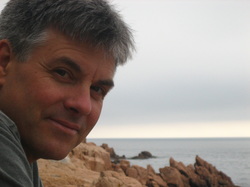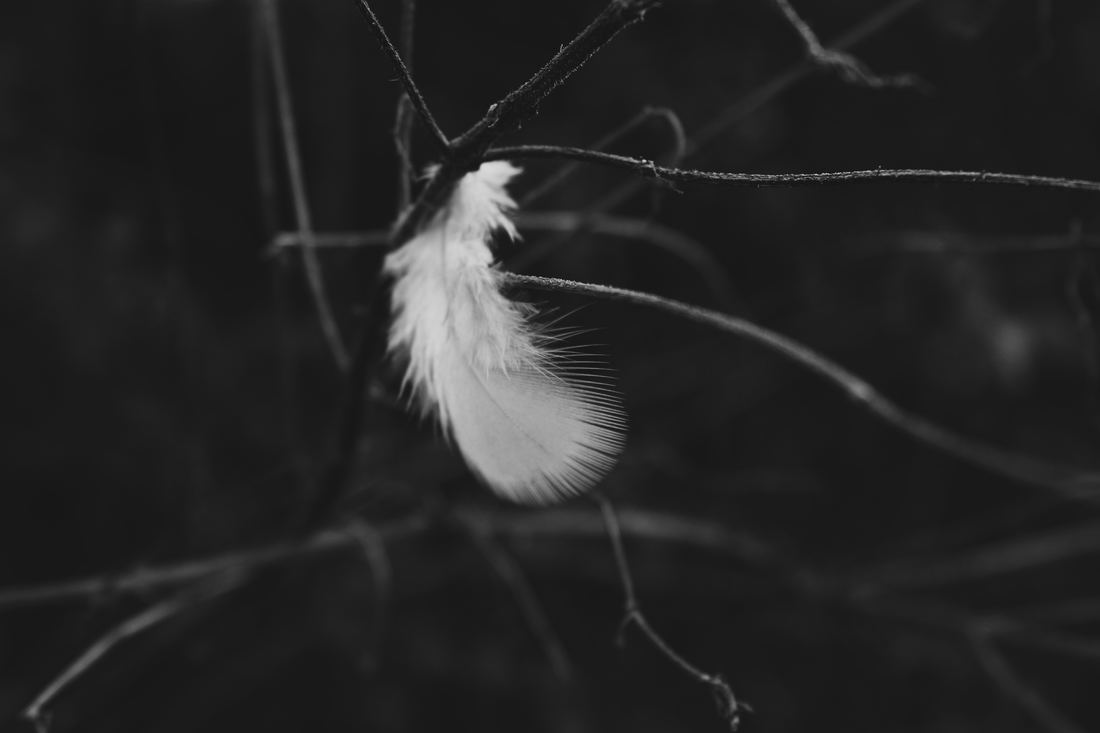|
9/21/2016 0 Comments Five Poems by Christien GholsonSalvation I was looking for a dress shirt in the Salvation Army store on Fourteenth Street when the woman with the heavy pancake makeup behind the counter turned on one of the radios for sale. A Saturday afternoon football game. I couldn’t understand a word, but it was strangely comforting. It reminded me of my grandfather sitting out on the porch most weekends when I was little, holding a little transistor radio to his ear, straining to hear. I found one shirt that fit – black, with two horizontal stripes on the breast pocket – but it looked more like a bowling shirt than a dress shirt. I immediately thought: What difference does it make? No one will care what I wear as long as I smile, look enthusiastic – but not too desperate – and say the things they want to hear. A job interview for a cashier job is nothing more than clichés tossed back and forth. “Are you in love with customer service?” “Yes I am! I’ve always been in love with customer service.” I decided against the shirt. Back at the shirt rack, trying not to think about how much I really needed that job, the football radio chatter suddenly stopped. I looked up, across the floor, at an old woman fingering a flower-patterned plate. My eyes looked into hers, her eyes looked into mine. I saw black ash swirling through falling snow. Christ, what did she see? The radio chatter started again and we both immediately looked away. A woman with four children in tow came in from the cold. The kids chased each other under macramé plant holders. An old man watched them, slow-cinching a cracked leather belt tightly around his shrunken, tiny waist. A teenage girl lifted up a discarded corporate team-building seminar t-shirt and frowned. Near the Border Suzanna’s father sits in a chair at the edge of the property, shotgun in his lap, eyes on the desert. He is protecting the border from aliens. Her mother stares out the kitchen window at the sight of the old man sitting out there in the rippling heat. “Sometimes he goes out to his chair in the middle of the night,” the old woman says, then shakes her head and laughs. “You know your father.” Up in her old bedroom Suzanna wonders what has happened to her parents. “They were normal once,” she says. “It’s Fox,” she insists. “They watch Fox News all the time.” I look out her bedroom window at the lone figure sitting out there in the heat. It could be the onset of dementia, but I think it’s something else. I want to say: “There are a lot of white men roaming the border with guns now. Seems to me they had something inside them that was already full of rage, fear, and hate, or Fox words wouldn’t have had any effect.” Something irradiated, twisted, from childhood. Oh Suzanna, oh don’t you cry for your dad… Instead, I say: “There are bodies out there…so many bodies…bodies that no one will ever find.” More Ghosts Junkies are ghosts moving down the street while I sleep. Sometimes they leave things: a syringe inside an empty plastic water bottle. Everything is rising, they say in my dream. Everything is rising; green wheels, blue wheels, red wheels; whirling pinpoints of desire, rising. When I hear them, I think: is it really only about survival – is that all? They say: My brain is red,the aperture of hunger. I devoured the moon once. I will rise up and devour it again. Right now, some of them are eating Fritos, one by one by one, in the dry wash at the end of the street. The clothes of these ghosts are scattered here and there, stuffed into plastic bags, hidden in crevices of rock – to ground them, to keep them from flying up into the sky. They say: There is no body. All is spirit, flying up. There is no body. What is shame? There’s a white cross on a hill overlooking this town. They say, I won’t do it again, and a shriveled eye sails up, up, into the sky. They say, I promise I won’t do it again, and a lone tooth rises like a tiny balloon, into the blue. Their skin becomes transparent; their stomach dissolves; their heart yearns to be pure spirit, a holy spirit. Please don’t make me do it again. Bernardo Bernardo needs to hold on to someone to get from one section of the bookstore to another. He counts the steps out loud. Bernardo’s hands are widows holding blue balloons. He does not cut his nails. Bernardo talks with the barista about LA. The barista is from LA. Bernardo spent some time in LA back in the 70’s. Bernardo’s hair is the rain that never makes it to earth; spirit that cannot find a body to hide in. Bernardo must be walked to the restroom. He counts the steps out loud. He holds onto my shoulder. Bernardo’s heart is a carnival. The giant tosses the flying girl into the air; at the apex, she sprouts wings, flies through an opening in the tent roof, and disappears forever. Bernardo doesn’t wipe properly – maybe he doesn’t know how – so he always smells like shit. Bernardo’s face is a shrine made of lake stones, all collected by a five-year-old girl. When Bernardo started pestering teenage girls in the café, the manager had had enough, called Bernardo’s brother, said Bernardo couldn’t come to the store anymore. The brother explained he worked, couldn’t leave Bernardo alone at home, had nowhere else to dump him. They worked out a compromise: three days a week. There are moments when I see what Bernardo looked like as a boy. Bernardo’s eyes are toy sailboats, waiting for the wind in the middle of a dirt road. The wind picks up, the sails billow… The Great Migration I play Yahtzee under the overpass with Frank. Frank has two metal folding chairs, a card table, four or five board games, and – if it’s a good day – some cigarettes. Sometimes he gives me a few. The price: I’m supposed to keep my mouth shut and listen. Frank never stops talking, has an explanation for everything that happens in the world. One time he pointed at an old woman who appeared in our space with a shopping cart and said: “She’s from NIMH. I can tell. You can see it in the way she walks. They took her mind. I’ve been there; a huge fucking building in Bethesda, Maryland, surrounded by guards and razor wire.” The old bat began taking plastic bags out of her cart, placing them in a circle around her, like she was trying to ward off something evil. (Circles can do that. I know my Aleister Crowley.) That’s when Frank got up, went over to her, and tried to get her to put the bags back in her cart. He actually tried to reason with her. “It’s not sanitary,” he kept telling her, over and over. She moaned like a child, hands over her ears, until he left her alone. What did he expect? Another time he told me that the medical profession used anti-depressants to hide the side-effects of their illegal experiments. “What experiments?” I said, egging him on. “You go in for a colonoscopy and they rearrange things inside your body,” he said. “Why?” I said. “To see the effects on your brain,” he said. Then added: “Nowadays, everything is a test…for The Great Migration. You have to be on your guard every second.” He waved his hand in the air, impatient for me to get it: “Look at the faces behind the windshields of any passing car. Really look at them. All you’ll ever see is a disturbed absence. The look of someone who feels like something has happened to them but they don’t know what.” I admit that one got to me. I went home that day, studied my mother’s face while she was watching TV, saw something I hadn’t seen before. Was it the absence Frank was talking about? I stood between her and the television, told her that something or someone might have fucked with her, re-arranged something inside her. “What are you talking about?” she said. I said: “Something happened to you but you don’t remember.” I kept saying it over and over, hoping the repetition would jolt her memory. It had nothing to do with keeping her from Frank’s Great Migration, whatever nonsense that is. I just wanted to sue the bastards who did this to her, make us a little money. She kicked me out of the house again.  Bio: Christien Gholson is the author of two books of poetry, All the Beautiful Dead (Bitter Oleander Press, 2016), and On the Side of the Crow (Hanging Loose Press, 2006); and a novel, A Fish Trapped Inside the Wind (Parthian, 2011). He was once a fish falling through a clear blue sky. He is now a plastic bag skipping across the desert floor. He lives in New Mexico. He can be found online at noise & silence.
0 Comments
Leave a Reply. |
AuthorWrite something about yourself. No need to be fancy, just an overview. Archives
April 2024
Categories |

 RSS Feed
RSS Feed
